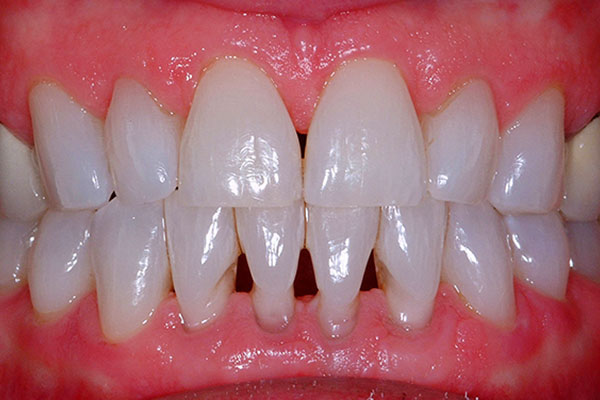10+ Tooth Swallowing Tips To Ease Parental Worries

The anxiety that comes with discovering your child has swallowed something they shouldn’t have, like a tooth, is a feeling many parents can identify with. The initial panic sets in, followed by a flurry of questions about what to do next and whether the child will be okay. Swallowing a tooth, although not a common occurrence, can happen to children, especially during the tooth-falling-out phase. It’s essential for parents to know that, in most cases, swallowing a tooth is not a cause for significant concern. Here’s what you need to know and some helpful tips to ease your worries.
Understanding the Risks
When a child swallows a tooth, the primary concern is whether the tooth can pass through the digestive system without causing any harm. Fortunately, teeth are relatively small and hard, which allows them to move through the digestive tract without incident in most cases. The body is equipped to handle small, hard objects, and the digestive system is designed to expel items that it cannot digest.
Immediate Actions
If your child swallows a tooth, here are some immediate steps you can take:
- Stay Calm: It’s crucial to remain calm and composed. Panicking can lead to unnecessary stress and potentially harmful decisions.
- Assess the Situation: If the tooth was recently lost, it’s likely that the child swallowed it intact. Ensure that there are no other signs of distress or difficulty breathing.
- Monitor for Symptoms: Keep a close eye on your child for any signs of discomfort, abdominal pain, vomiting, or difficulty passing stools. These could be indications that the tooth is causing an obstruction.
- Encourage Fluids: Encourage your child to drink plenty of water to help the tooth move through the digestive system.
Preventive Measures
While swallowing a tooth is generally not harmful, preventing such incidents can alleviate unnecessary worry. Here are some preventive measures:
- Supervise Tooth Loss: If your child is losing teeth, supervise them closely, especially if they are excited or distracted, which can lead to accidental swallowing.
- Teach Good Habits: Educate your child on the importance of not swallowing items that are not food and how to properly dispose of a lost tooth.
- Encourage Open Communication: Make sure your child feels comfortable coming to you if they accidentally swallow something.
When to Seek Medical Attention
In most cases, swallowing a tooth does not require medical intervention. However, there are situations where seeking medical attention is advisable:
- Symptoms Persist: If your child experiences persistent abdominal pain, vomiting, or difficulty passing stools.
- Signs of Intestinal Blockage: If you notice any signs that could indicate the tooth is blocking the intestine, such as severe abdominal pain, constipation, or vomiting.
- Difficulty Breathing: Although rare, if the child experiences difficulty breathing, it could indicate that the tooth has entered the airway, which is a medical emergency.
LONG-TERM CARE AND PREVENTION
For Long-term care and prevention of tooth swallowing, ensure your child follows proper dental hygiene to prevent any complications that may arise from poor oral health. Regular dental check-ups can also help identify any potential issues early on.
Easing Parental Worries
To ease your worries, remember that the body is incredibly resilient, and in the vast majority of cases, a swallowed tooth will pass through without incident. Here are some additional tips to keep in mind:
- Educate Yourself: Knowledge is power. Understanding the process and the low risk involved can significantly reduce anxiety.
- Keep an Eye on Your Child: Regularly check in with your child to ensure they are not experiencing any discomfort or pain.
- Encourage a Balanced Diet: A diet high in fiber can help ensure regular bowel movements, which can assist in the passage of the tooth.
FAQs
What are the chances of a swallowed tooth causing harm?
+The chances are extremely low. The digestive system is designed to expel items it cannot digest, and a tooth, being small and hard, typically passes through without incident.
Should I take my child to the doctor if they swallow a tooth?
+Unless your child is showing signs of distress, difficulty breathing, or severe abdominal pain, a trip to the doctor is usually not necessary. However, if you're unsure, it's always best to consult with a healthcare professional for peace of mind.
Can swallowing a tooth lead to any long-term health issues?
+In rare cases, if the tooth causes an intestinal blockage and is not treated promptly, it could lead to more serious health issues. However, this is extremely rare, and most cases of swallowed teeth do not result in long-term health problems.
Conclusion
Swallowing a tooth, while it can be a worrisome incident for parents, is generally not a cause for significant concern. By understanding the process, taking preventive measures, and knowing when to seek medical attention, parents can ease their worries and ensure their child’s health and well-being. Remember, staying calm, being informed, and maintaining open communication with your child are key to navigating such situations effectively.
